Iranian embassy staff member killed in Damascus, Tehran reports
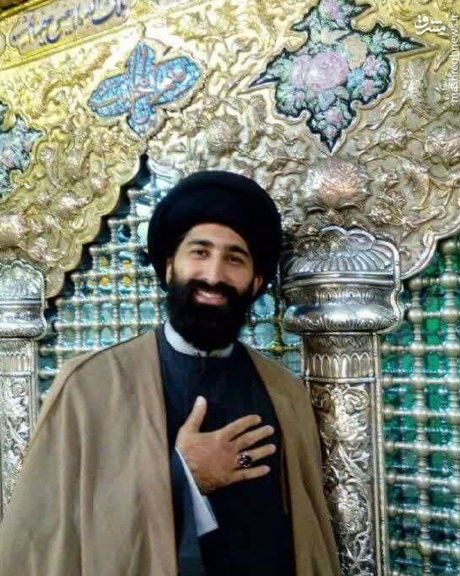
The spokesperson for Iran's Foreign Ministry said Saturday that a local employee of Iran's embassy in Damascus was killed last week after being shot in his vehicle in the city.

The spokesperson for Iran's Foreign Ministry said Saturday that a local employee of Iran's embassy in Damascus was killed last week after being shot in his vehicle in the city.
Esmaeil Baghaei said that Davood Bitaraf was killed by "terrorists" and added that the Syrian transitional government is responsible for "identifying, prosecuting, and punishing the perpetrators of this crime."
"The Ministry of Foreign Affairs is seriously pursuing the matter through appropriate channels and various diplomatic and international avenues," Baghaei added.
In an interview published Friday, Syria's de facto new leader, Ahmed al-Sharaa, said Iran’s influence in the region has been significantly diminished following the fall of its ally, President Bashar al-Assad. The interview with Asharq Al-Awsat comes after Sharaa's radical Sunni Islamist group, Hayat al-Tahrir Sham (HTS), swiftly defeated Assad's forces this month.
Sharaa said that Syria's opposition had “set the Iranian project in the region back by 40 years,” signaling a major shift in Syria’s stance toward Iran.
“By removing Iranian militias and closing Syria to Iranian influence, we’ve served the region’s interests—achieving what diplomacy and external pressure could not, with minimal losses,” he said.
Iran's Islamic government has been shaken by recent developments in Syria, where it had supported Assad's regime since anti-government protests began in 2011. Its withdrawal from Syria follows setbacks faced by its other ally, Hezbollah, in Lebanon.
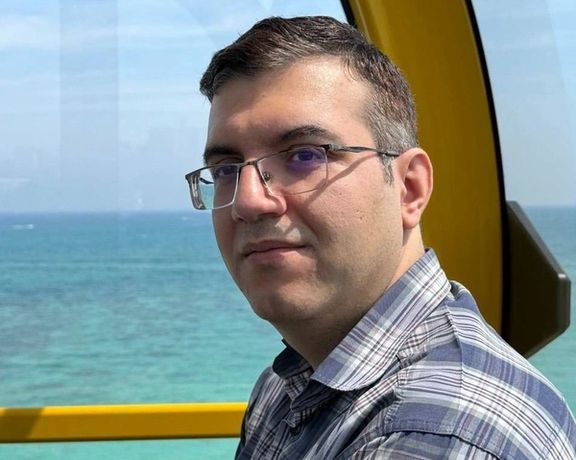
Iran's is trying to secure the release of Mohammad Abedini, who was arrested at Milan airport in connection with a drone strike in Jordan earlier this year that killed US troops, IRGC-affiliated Tasnim News Agency reported Saturday.
"The lack of official notification to the Iranian embassy and the denial of access to Abedini, an Iranian citizen, is a clear example of abduction," Tasnim wrote.
The US Justice Department on Monday charged Abedini and another Iranian, Mahdi Mohammad Sadeghi, with conspiring to export sensitive US technology to Iran’s Revolutionary Guards, including navigation systems for military drones linked to the deaths of three US service members.
Dual US-Iranian national Mahdi Mohammad Sadeghi, 42, a resident of Natick, Massachusetts, and Abedini, 38, of Tehran, were charged with violating US export control and sanctions laws.
Abedini is also accused of providing material support to the Islamic Revolutionary Guard Corps (IRGC), a designated foreign terrorist organization, leading to the deaths of three US soldiers in a January drone attack on a military base in Jordan.
At the time, the US Department of Defense attributed the attack to Kata'ib Hezbollah, an Iranian-backed Iraqi militia. It was the deadliest assault on US troops since the Oct. 7 Hamas attack on Israel ignited a broader conflict involving Israel and groups aligned with Tehran.
Sadeghi was arrested in Massachusetts, while Abedini was detained in Italy at the request of US authorities. Both face up to 20 years in prison, with Abedini also facing charges that could carry a life sentence.
Tasnim also quoted a university classmate of Abedini as saying, "Mohammad is the CEO of San'at Danesh Rahpouyan Aflak (SDRA) in Iran. This company operates in the field of precision measurement equipment, with its products having various applications, including medical and sports uses. Abedini was also the director of a Swiss company named Illumove SA, which specialized in motion capture equipment. All activities of these companies were conducted under the legal and tax oversight of the Swiss government."
"These devices, due to their advanced technology, have multifunctional capabilities. The company's products, after being legally marketed in Iran, can be purchased and used by any individual or entity. However, the US government, based on unfounded claims that these devices were used in drones involved in the mentioned attack, has initiated legal proceedings and arrested these individuals," the friend added.
According to court filings, Abedini founded San’at Danesh Rahpooyan Aflak Co. (SDRA), an Iranian company that manufactures the Sepehr Navigation System, which is used in IRGC military drones, as well as in cruise and ballistic missiles. Sadeghi, a former founder of a Massachusetts technology company, is accused of conspiring to obtain US-origin components through illicit channels for SDRA, in violation of export laws.
Investigators found that SDRA’s navigation systems were key components in the Shahed drones used in the January 28 attack on the Tower 22 base in Jordan, which killed three service members and injured over 40 others.
The US government is currently pursuing Abedini’s extradition from Italy.
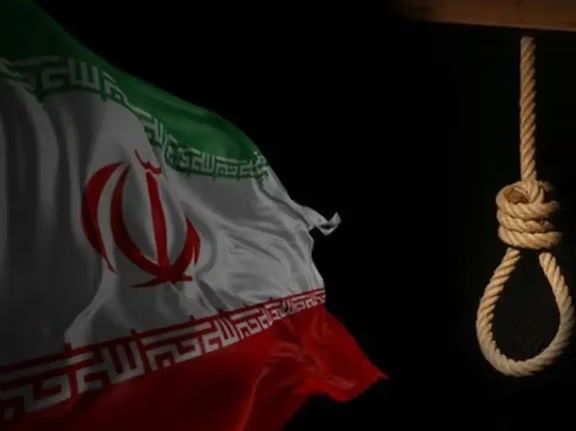
Iran led the world in executions this year, with at least 800 documented cases as of December 1, according to the Death Penalty Information Center (DPI).
"Despite the overall global trend towards abolition, total known executions worldwide increased for the third consecutive year, led by Iran, Saudi Arabia, and Iraq," according to recent data from the DPI.
Nonviolent resistance efforts have started in response to Iran's ongoing use of the death penalty, as reported by the non-profit organization (NPO). One example is the weekly “No Death Penalty Tuesday” hunger strike by Iranian prisoners. This movement, first called “Black Tuesdays,” began on January 30, 2024. It was launched by 10 political prisoners in Karaj’s Ghezel Hesar Prison after several political prisoners were executed in January and weekly group executions occurred at the prison.
On Thursday, the United States sanctioned Iran’s Ghezel Hesar Prison, where hundreds of dissidents have faced torture and execution over the years.
“This prison saw severe human rights abuses, including cruel, inhuman, and degrading treatment of individuals in Iran who tried to exercise their right to free expression,” said US Secretary of State Antony Blinken on Thursday.
Earlier this year, the United States also sanctioned officials from Iran’s Prisons Organization for their role in suppressing protests after Mahsa Amini’s death in custody in September 2022.

Presidents Joe Biden and Donald Trump both failed to halt Iran’s march toward nuclear weapons, Representative Brad Sherman, one of the strongest Democratic voices in the US Congress opposing the Islamic Republic told Iran International.
A House Representative for 28 years and counting - much of that time as a senior member of the House Foreign Affairs committee - Sherman has disagreed with both presidents from both parties on their Iran policies.
An outspoken critic of Iran's Islamic rulers, Sherman champions legislation criticizing their treatment of the Iranian people and tightening sanctions.
The representative for swish Malibu and Bel Air in Los Angeles was one of a small handful of democrats that voted against the 2015 Joint Comprehensive Plan of Action (JCPOA), an agreement to limit the Iranian nuclear program in return for sanctions relief.
There had to be a better deal, he said.
“I disagreed with the JCPOA, but then under Trump, there was less intelligence being gathered by the IAEA and no diminution, " Sherman said of the UN nuclear watchdog which inspects Iranian facilities.
"While he put more pressure on the regime, he didn't slow down the nuclear program. And then we see Biden also not slowing down the nuclear program,” Sherman told the Eye for Iran podcast.
The Democratic congressman acknowledged the frustrations of some Iranian- American democrats who voted for Trump in November to apply maximum pressure on Iran, but said the president-elect's tough talk didn’t succeed either.
“I know opponents of the regime tend to like Trump's bravado and rhetorical stance, and certainly he shows more emotion against the regime than Biden does. But neither of them have stopped the centrifuges. Neither of them have stopped the murder of anyone who dares to raise their voice .”
The E3, a diplomatic coalition comprising of Germany, Britain and France released a statement Tuesday, expressing concern over Iran’s increased uranium enrichments, calling on Tehran to reverse its nuclear advancements.
The outgoing US Secretary of State Antony Blinken, addressing the Council of Foreign relations on Wednesday, said the clerical establishment may consider a nuclear weapon after setbacks in the region.
Blinken referred to Israel's ability to damage Tehran’s proxies and Iran’s military and defense capabilities in a direct strike in October.
The top US diplomat also said there’s still a chance for the incoming president to negotiate with Iran.
"I think there is the prospect of negotiations," Blinken said at the Council on Foreign Relations in New York, "I don't think that a nuclear weapon is inevitable."
But Sherman said the traditional Democratic view of showing restraint in negotiations is a big mistake when it comes to dealing with Iran.
“There are those in the Biden administration who think that by doing a little bit less, by some forbearance, they'll be able to negotiate,” said Sherman “No, this is a regime where if you're going to negotiate, you must do it from strength.”
Tougher Sanctions
To start, Sherman wants tougher sanctions on Iranian exports.
“We have now tougher sanctions on Russian exports than we have on Iran.”
America must redouble their efforts to curb Iran’s nuclear program according to Sherman, who also said the US should fund covert democracy groups fighting to topple the clerical establishment. He declined to elaborate.
“I've certainly supported everything we've done to help Democratic forces, and some of that is classified.”
While Sherman supports Republican President-elect Donald Trump's so-called negotiating through strength, he believes the Iranian system is determined to build a bomb.
“As long as there's an Islamic Republic of Iran, it will be a country seeking nuclear weapons.”
You can watch the full episode of Eye for Iran featuring congressman Brad Sherman on YouTube. Or you can listen on Spotify, Apple, CastBox or Amazon.
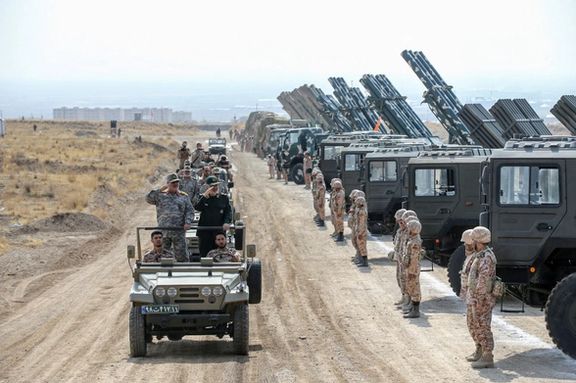
Hamas documents captured by Israel have uncovered details about Iran’s transnational routes through Syria, Lebanon, and the West Bank used to supply weapons to its allied groups, according to the Jerusalem Post.
The documents detail the collapse of a Hamas smuggling network in Jordan and how the group, along with Iran, attempted to transfer weapons to the West Bank to spark a new front against Israel.
It also highlights the involvement of Russia, despite being an ally of Iran, in disrupting smuggling operations in the Syria-Jordan-Israel border triangle, alongside measures by the US, Israel, and Jordan to block Iranian arms transfers through sanctions, airstrikes, and enhanced border controls.
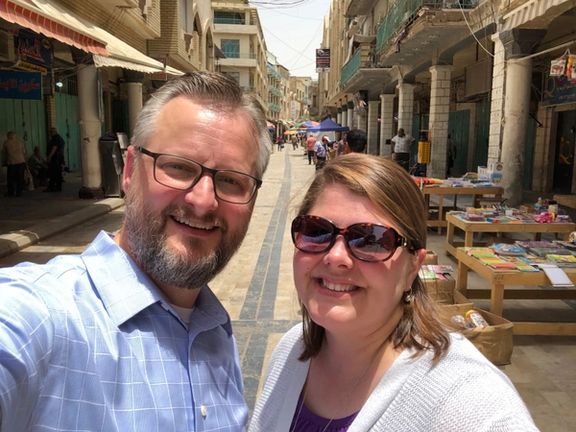
The US Justice Department on Friday charged a captain in Iran's Islamic Revolutionary Guard Corps (IRGC) with killing an American in the Iraqi capital Baghdad in 2022.
The murder and terrorism offenses against Mohammad Reza Nouri, 36, relate to the shooting death of Stephen Troell, 45, who worked at an English language institute in Iraq.
Troell was gunned down in Baghdad on Nov. 7 2022 while driving and accompanied by his wife. His last post on X was a selfie of the couple in Baghdad published June 11, 2018. "How much we loved visiting Baghdad!!! Iraq's treasure is its people," he wrote.
The complaint unsealed in a Manhattan federal court alleged the murder was Iran's retaliation for the killing of top IRGC commander Qassem Soleimani in a US drone strike in Baghdad in 2020.
"The Department of Justice will not tolerate terrorists and authoritarian regimes targeting and murdering Americans anywhere in the world," said Attorney General Merrick Garland in a statement.
"Stephen should still be alive today, and the Justice Department will work relentlessly to ensure accountability for his murder." he added.
Nouri is serving a life sentence in Iraq along with four Iraqis after being convicted there of Troell's murder. He had a played a key role in the targeting and killing of Troell, the complaint reads, including gathering information on Troell and his family.
Nouri is also alleged to have helped procure firearms and a vehicle for the operation. He believed Troell was an American or Israeli intelligence officer, according to the criminal complaint.
Minutes after the attack, he sent an encrypted message to another man involved. "The guys are fine?" he allegedly wrote.